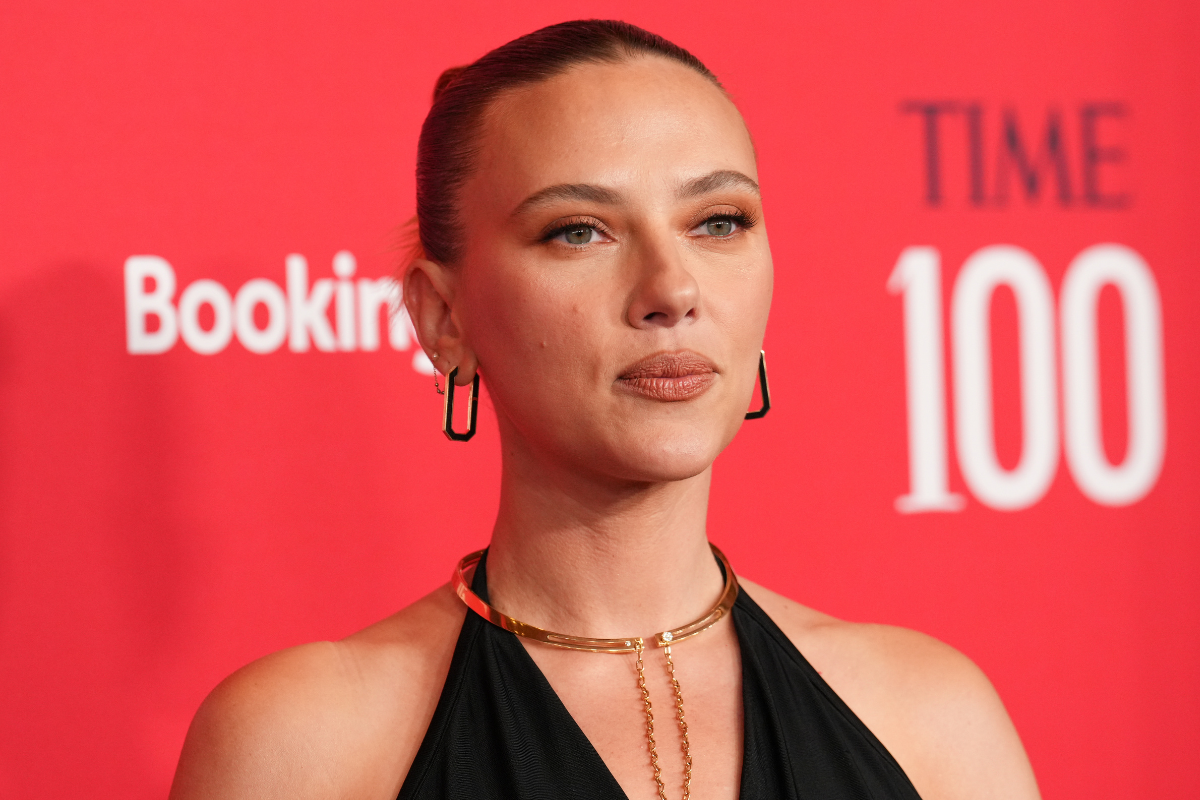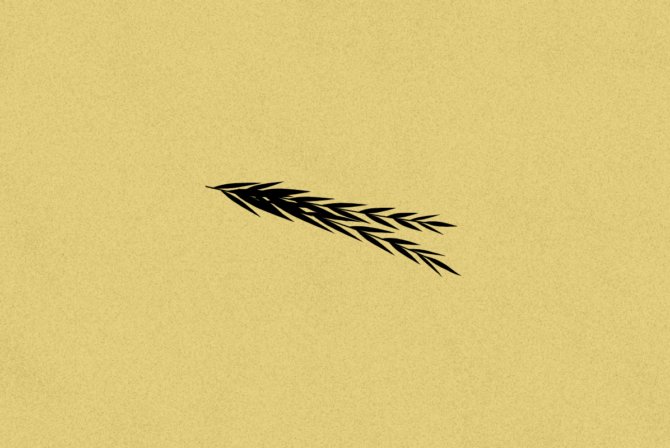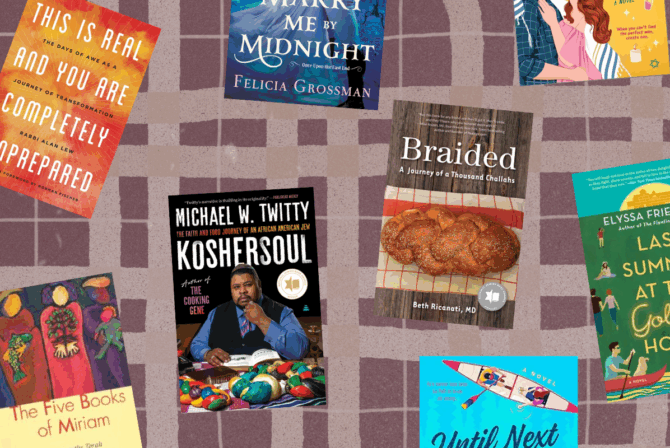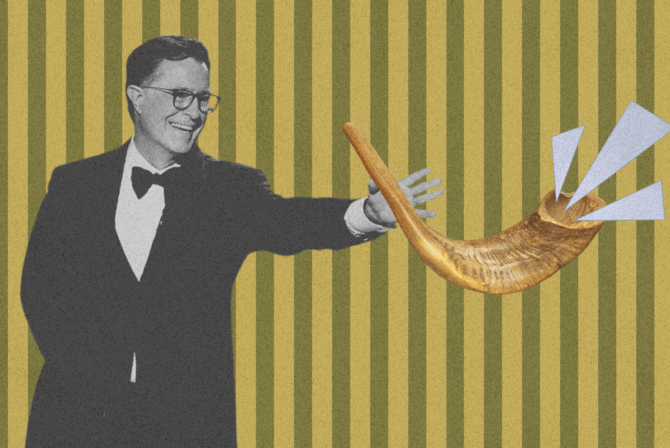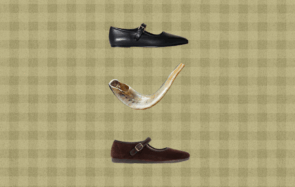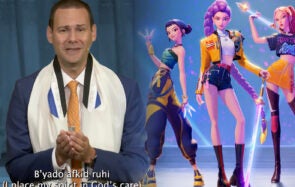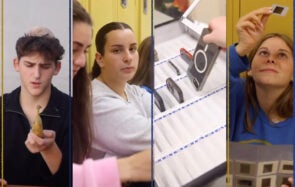Back in 2017, Jewish actress Scarlett Johansson discovered her family’s Holocaust history in “Finding Your Roots.” When her maternal great grandfather, Saul Schlamberg, immigrated to the United States and ended up on Ludlow Street on the Lower East Side, reportedly as a banana salesman, he left behind a brother Moishe in Grojec, Poland. Moishe’s entire family ended up in the Warsaw Ghetto, where three of his children died. Johansson teared up as she faced the harrowing discovery. “I promised myself I wouldn’t cry,” she told host Henry Louis-Gates. “But it’s hard not to.”
Johansson also cried when she first read the script of “Eleanor the Great,” which will be her feature film directorial debut and is premiering at the 2025 Cannes Film Festival this week as part of the Un Certain Regard lineup.
“When I read it, I cried, and that almost never happens,” she told Deadline, saying that another movie that elicited a similar reaction in her was “Jojo Rabbit,” Jewish director Taika Waititi’s Holocaust film. In “Jojo Rabbit” Johansson plays Rosie Betzler, Jojo’s mother, who is very anti-Nazi and who helps shelter a Jewish girl in her home.
Johansson’s upcoming film, too, draws on Holocaust history. In it, June Squibb plays the eponymous Eleanor, unmoored by the death of her best friend and roommate, Bessie, a Holocaust survivor who grew up in Nazi occupied Poland. Eleanor ends up in New York City, living with her daughter and grandchildren, feeling lonely and placeless. She finds solace by attending a local support group for Holocaust survivors, finding the echoes of Bessie’s story in the people around her. The group in the movie is made up of actual survivors; Johansson and her team worked with the USC Shoah Foundation and Congregation Rodeph Sholom in the city to find the right subjects to include in these scenes, whose stories become a focal point of the movie.
Squibb, who is Jewish and recently played a Jewish retiree in the delightful “Thelma,” plays a colorful, sassy Eleanor. In the first preview clip of the film, she has no problems making risqué jokes at the expense of her rude neighbor Clarice, who makes dismissive comments about Eleanor and her two daughters. “Say goodbye to Melvin for me,” Eleanor glibly tells her, referring to the woman’s husband. “We had such a wonderful time the other night. He’s very strong.” It’s such a funny and winning little clip that definitely has us thrilled to meet Eleanor. The character was inspired by the film screenwriter Tory Kamen’s own Jewish grandmother, Elinore, who she shares on Instagram, was “in fact, the greatest.”
When speaking about Johansson, Kamen celebrated the parallels between the two women and their grandmothers. “We had a really natural rapport,” Kamen, for whom this is also the first production of a feature film script she penned, said of Johansson. “Both of us telling stories about our grandmothers who we grew up with, and how much they meant to us, and how it felt like that generation’s stories were slipping through the cracks as they were leaving us.”
In the movie, Eleanor piques the interest of journalism student Nina at the Holocaust survivor meetings, and she ends up caught in a web of untruths as she takes ownership of Bessie’s story. Nina is played by British actress Erin Kellyman. Bessie is played by Israeli actress Rita Zohar, who herself was born in a concentration camp in World War II. Zohar was a legend of the Yiddish theater in Israel before having a prolific career in Hollywood in the 1980s, starring in movies like “Amadeus.” She later returned to Israel, where she starred in iconic and critically acclaimed movies like “Laura Adler’s Last Love Affair” and “Mrs. Moskowitz and the Cats.”
In an interview with Deadline, Johansson opened up about making a movie centered on Holocaust stories and Jewish stories.
“It’s complicated,” she said, “because the film to me very much is a movie about grief, it’s about human connectivity, and it’s also about forgiveness. It’s also about the truth versus reality, and it’s also about who has the right to tell someone else’s story, or do we have the right to tell someone else’s story? There’s a lot in it. Certainly, Jewish identity is a part of that.”
“We don’t have really too many films about what it looks like now, as these survivors are in the final chapter of their life, and what that looks like and what that means. It was an honor to be able to help tell some of these stories,” Kamen said in the same interview.
Stories about the late lives of Holocaust survivors and the ways we struggle to keep their stories alive feel more important to share now than ever before. It’s amazing to have this group of incredible Jewish women creatives doing this work as they helm such a special movie.
